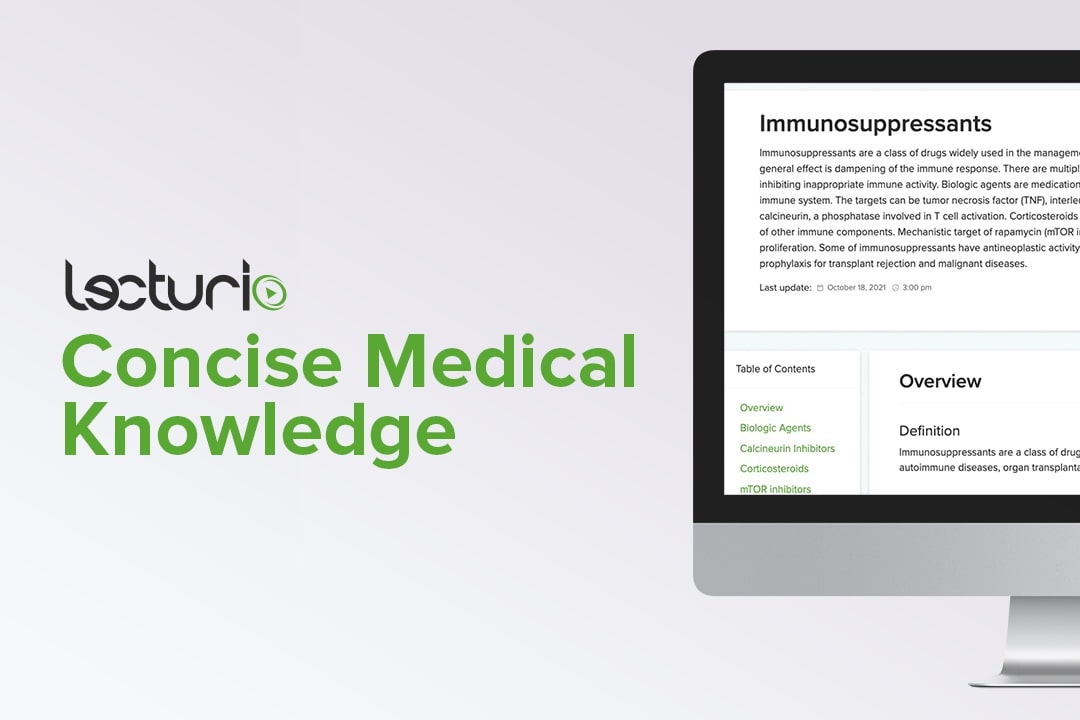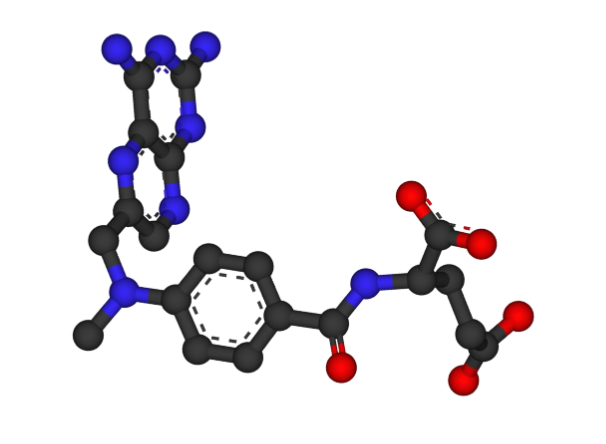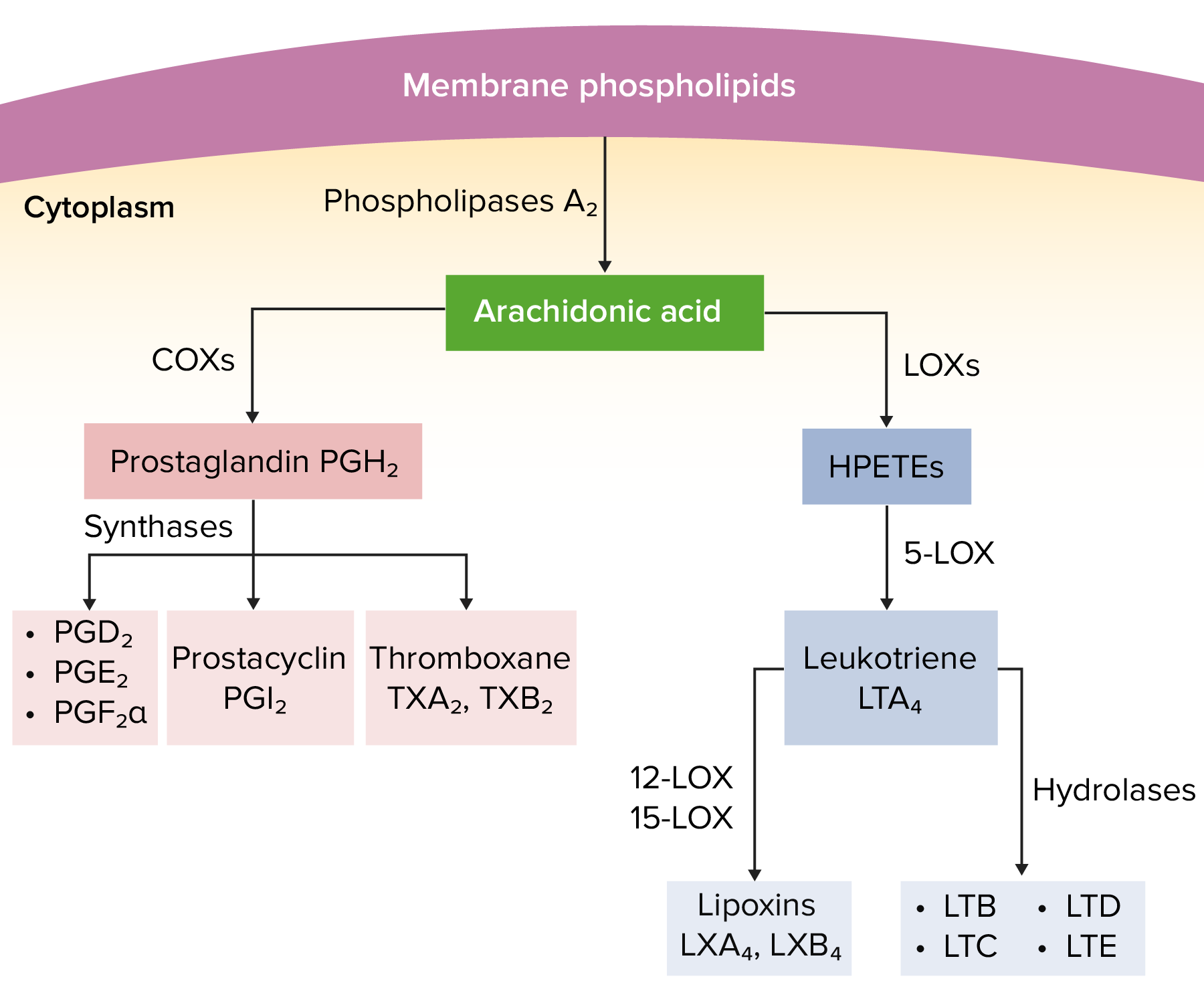Playlist
Show Playlist
Hide Playlist
Autoimmune Diseases: Therapy
-
Slides Autoimmune Disease.pdf
-
Download Lecture Overview
00:01 So we’ve looked at a number of different autoimmune diseases. 00:06 Let’s now have a look at how one can treat these diseases. 00:12 So where there is something missing; so for example, in Hashimoto’s disease there is a destructive thyroiditis leading to hypothyroidism. 00:22 That means that the patient does not secrete sufficient levels of thyroid hormone. 00:26 One can simply give a artificial form of the hormone to the patient. 00:32 So you’re replacing the thyroxine that is needed by the patient, as a tablet. 00:39 In type I diabetes, the insulin can be given by injection or islet cells can be transplanted. 00:50 In pernicious anemia, vitamin B12 injections can be given. 00:57 Where there is an overproduction of hormones, as we see in Graves’ disease with the overproduction of thyroid hormones. 01:06 One can use inhibitors of that process. 01:09 So using thyroid peroxidase inhibitors, or by giving a radioactive form of iodine. 01:17 Iodine is required for the generation of the thyroid hormones. 01:21 So dietary iodine is normally taken up and specifically taken to the thyroid where it’s needed to produce thyroid hormone. 01:29 So if a radioactive version of iodine is given to a patient, that is also taken straight to the thyroid and the radiation from that isotope I131, will damage the thyroid cells preventing excessive production of thyroid hormone. And a third approach that is used in Graves’ disease is subtotal thyroidectomy, where some of the thyroid is surgically removed. 01:56 In myasthenia gravis, thymectomy can be used. 02:04 Another approach is to use anticholinesterase drugs. 02:12 In multiple sclerosis, at least in some patients, the use of interferon-β can be an extremely powerful therapeutic approach. 02:24 And cytokine inhibitors are now used in a number of autoimmune conditions. 02:30 Anti-TNF specifically is used in rheumatoid arthritis and similar rheumatological type autoimmune diseases. 02:40 Adhesion molecule inhibitors can be used, for example in multiple sclerosis - natalizumab which is a monoclonal antibody against the α4 integrin can the prevent cells of the immune system crossing the blood brain barrier and entering the CNS. 02:58 Disease modifying anti-rheumatic drugs (DMARDs) are used in rheumatological conditions - methotrexate, sulfasalazine, gold salts and so on. 03:10 Nonsteroidal anti-inflammatory drugs are used in SLE, rheumatoid arthritis, autoimmune hemolytic anemia, Goodpasture’s syndrome and a number of other autoimmune conditions. 03:22 In rheumatoid arthritis, one can use a monoclonal antibody against the CD20 molecule which is present on the surface of B-cells. 03:31 Anti-mitotic drugs, the variety of which are listed there, can be used in autoimmune thrombocytopenic purpura, SLE, myasthenia gravis and autoimmune hemolytic anemia. 03:43 And pooled normal human immunoglobulin has a beneficial effect in Guillain-Barre syndrome and in myasthenia gravis.
About the Lecture
The lecture Autoimmune Diseases: Therapy by Peter Delves, PhD is from the course Hypersensitivity and Autoimmune Disease.
Included Quiz Questions
Anti-tumor necrosis factor is most often employed in the treatment of which of the following conditions?
- Rheumatoid arthritis
- Pernicious anemia
- Goodpasture’s syndrome
- Type I diabetes
- Hashimoto’s disease
Why is injection of vitamin B12 preferred over oral vitamin B12 in patients with severe pernicious anemia?
- A lack of intrinsic factor prevents appropriate absorption of oral vitamin B12.
- An excess of intrinsic factor prevents appropriate absorption of oral vitamin B12.
- An excess of intrinsic factor enhances vitamin B12 availability through injection.
- A lack of intrinsic factor enhances vitamin B12 availability through injection.
- Intrinsic factor production is enhanced through injection of vitamin B12.
Interferon beta-1 alpha therapy is most commonly used in the treatment of which of the following diseases?
- Multiple sclerosis
- Rheumatoid arthritis
- Systemic lupus erythematosus
- Hashimoto's thyroiditis
- Grave's disease
Customer reviews
5,0 of 5 stars
| 5 Stars |
|
5 |
| 4 Stars |
|
0 |
| 3 Stars |
|
0 |
| 2 Stars |
|
0 |
| 1 Star |
|
0 |






